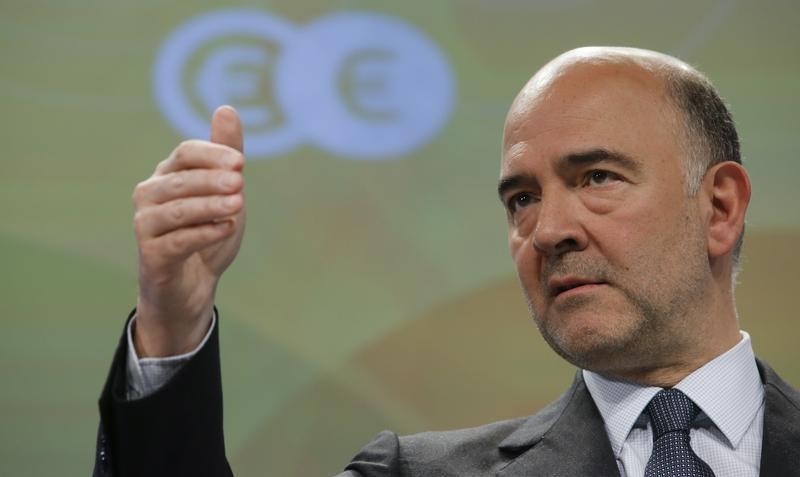By Philip Blenkinsop
BRUSSELS (Reuters) - The European Commission re-launched plans on Wednesday to introduce common tax rules for multinationals, saying that public anger over tax avoidance and a new approach should win over EU member states that blocked the idea four years ago.
The Commission, the European Union's executive, said it wanted a 'common consolidated corporate tax base' (CCCTB) to prevent "aggressive" tax planning measures such as artificially shifting profits to the country where rates are lowest.
"What we are doing is part of a trend," Economic Affairs Commissioner Pierre Moscovici told a news conference.
"During the crisis our citizens have had to contribute a lot. What they don't want to see is that corporations, because they have sophisticated legal advice, can juggle between administrations."
Corporate taxes have remained in the headlines because of the way multinationals can legally reduce their bills by basing themselves in low-tax centres. The EU is already investigating the tax arrangements of Apple (O:AAPL), Starbucks (O:SBUX) and Amazon (O:AMZN) in some member states.
Moscovici said countries were working on the basis of tax rules drawn up in the 1930s and more recent ad-hoc decisions by individual member states, but said a common approach was needed.
A previous attempt to bring in CCCTB drew opposition from member states who saw it as a first step towards harmonising tax rates, regarded as a sovereign issue.
Moscovici said that was not the plan, nor was it the Commission's intention to set a minimum corporate tax rate.
Under CCCTB, companies would use just one EU system to compute their taxable income rather than dealing with the rules in 28 different member states, saving businesses about 700 million euros ($790 million) per year.
It would be designed to eliminate mismatches between national systems, which companies can currently exploit.
"ROOM FOR DISCUSSION"
CCCTB, which would be mandatory at least for multinationals, would come into effect in stages, with the first target to agree on a common tax base and then consolidation, the most contentious issue, would be introduced later.
Consolidation would entail the elimination of major tax obstacles as well as opportunities for tax avoidance, such as transfer pricing, and allow companies to offset losses in one member state against profits in another.
Moscovici said member states had given broad support for re-launching CCCTB when the Commission consulted them earlier in the year, with a strong political will to fight tax avoidance.
Commenting on a recent trip he made to Ireland, one of the opponents of the initial plan, Moscovici said: "I could see that the present text was a non-starter but that there could be room for discussion on this two-step approach."

($1 = 0.8872 euros)